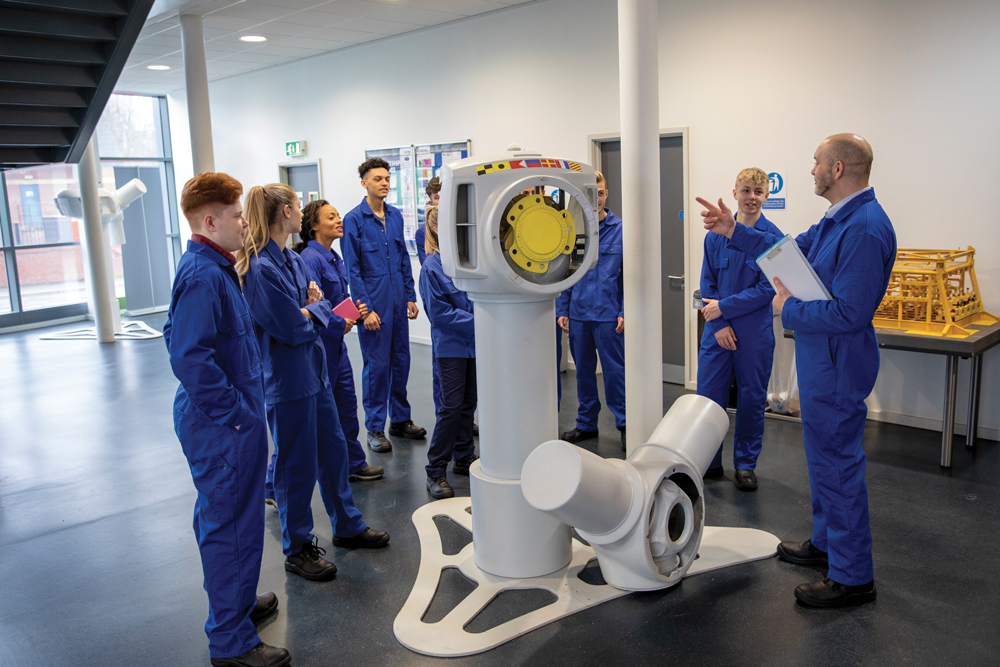Can Green Jobs Be Good Jobs?
By Eliot Cresswell | Winter 2021 | Clean Power Guide
Can green jobs be good jobs? There’s no guarantee. But with thoughtful and deliberate action, we can ensure that those securing our future against the climate crisis can also secure their family’s future with good wages, safety standards, opportunity for advancement, health care and retirements benefits, access to quality child care, and all the things workers should be able to take for granted in the 21st century.
Green jobs cover a wide range. There are solar installers, wind technicians, geothermal system designers, and others who work on renewable energy systems all the time. The green economy also depends on electricians and line workers who might work on renewable energy projects or electrical grid upgrades for part of the year, then transition to various other building and construction projects. And bringing energy efficiency and renewable power to the entire economy creates green job opportunities across industries, from agriculture to cryptocurrency.
What makes a job a good one? At least three factors:
- Benefits: What does the job provide for the worker?
- Results: What does the job produce for the market and the world?
- Access: Who can obtain, retain, and succeed in the job?
According to the 6th annual Clean Jobs Report by E2, the median hourly wage for clean energy jobs in 2019 was $23,89, compared to $19.14 for the economy overall. While average clean energy wages are lower than the averages in the fossil fuel industry, clean energy jobs are three times more plentiful.
When it comes to the things we most commonly associate with good jobs—family-sustaining wages, benefits, safety standards, regular schedules, representation for workers, and opportunities for advancement—the American labor movement has led the way for generations. In alignment with the labor movement and to elevate existing pro-worker policies, Climate Jobs NY and the Center for American Progress have identified five job-quality recommendations specifically for green jobs.
- Labor peace agreements, binding contracts between unions and major employers which limit both strikes and employer intimidation of the union
- Prevailing wage requirements requiring that government-funded projects provide wages and benefits at least comparable to others in the industry and/or region
- Worker boards to monitor and upgrade wages and working conditions
- Expanded access to apprenticeship and pre-apprenticeship programs.
- Enforcing workplace health and safety laws.
For all these strategies to be widely accepted, “we must expand the understanding, use and applications of renewable energy,” urges Mary Jane Bertram, Workforce Development Institute’s Hudson Valley Regional Director. “In doing so, we must also expand access to the technology, training, and opportunities.”
So, can green jobs be good jobs? If we prioritize worker empowerment, equity, and inclusion as called for in the CLCPA, they can. If we do not, we it will be harder to attract and retain the quantity and quality of worker necessary to achieve our energy and climate goals.
